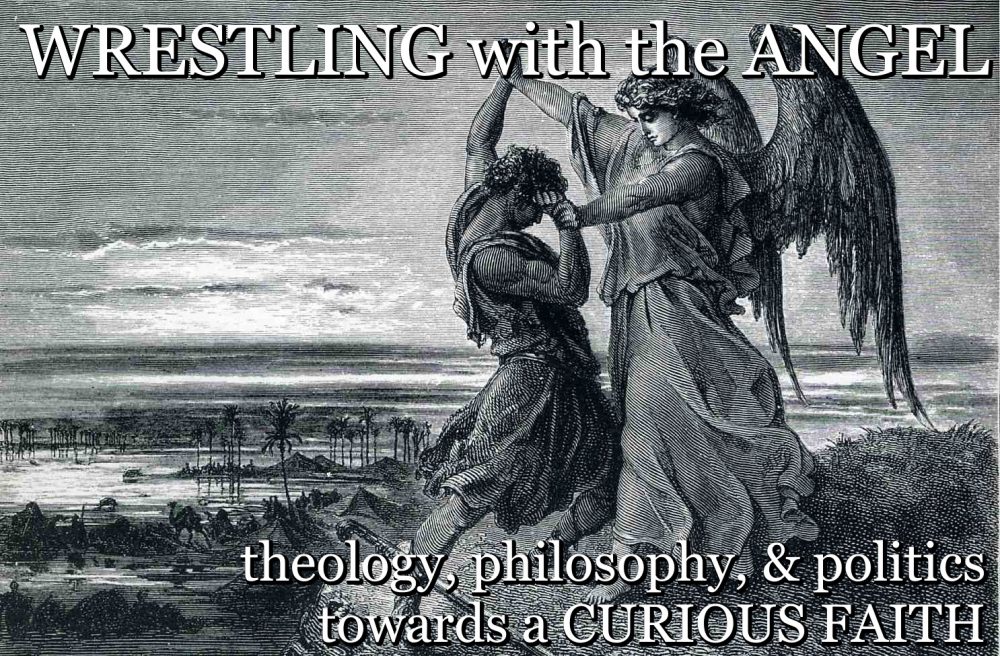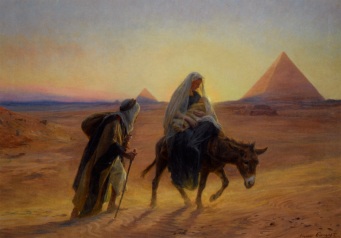 During Advent, I found myself seeking new directions in my devotional practice. I found that I was less attentive during private times of prayer. After thinking on this for a while, I decided to begin using questions as a part of my prayer life. At a time when I wasn’t sure how to pray, I figured spiritual honesty was the best approach. So, during Christmastide, I reflected on three questions as a part of my devotional and prayer practice: what does Jesus’s Incarnation really mean? How is Jesus incarnate with us today? How can we live that incarnation? I say that I reflected on these questions, rather than “asked” them. I wasn’t seeking a straightforward answer–from myself or God. I wanted to really meditate on these questions, to enter the depth and mystery of Christian life.
During Advent, I found myself seeking new directions in my devotional practice. I found that I was less attentive during private times of prayer. After thinking on this for a while, I decided to begin using questions as a part of my prayer life. At a time when I wasn’t sure how to pray, I figured spiritual honesty was the best approach. So, during Christmastide, I reflected on three questions as a part of my devotional and prayer practice: what does Jesus’s Incarnation really mean? How is Jesus incarnate with us today? How can we live that incarnation? I say that I reflected on these questions, rather than “asked” them. I wasn’t seeking a straightforward answer–from myself or God. I wanted to really meditate on these questions, to enter the depth and mystery of Christian life.
Now it is the season of Epiphany, when we in the western Church reflect on the visitation of the magi (or “wise men”) who had been called to a new land to meet a new human who would inaugurate a new kind of life. So, I find myself reflecting on new questions: what New Thing is God doing with the birth of Jesus? How can we have eyes to see and ears to hear, so that we can understand this new thing? How can be be prepared for a New Thing to happen today?
What I have found interesting–and surprising–is that my Epiphany questions seems to almost provide answers to my Christmas ones. What does Jesus’s incarnation mean? It means that God is doing something truly, radically new in the world. How is Jesus incarnate with us today? By opening us to the possibility of more new and radically unexpected possibilities.
Jesus is so familiar to us Christians–and, indeed, even to many non-Christians–that we forget how strange, how uncomfortable, how truly and ridiculously new he was and is. We often domesticate him, make him an easy ally and friend, a crutch for our own personal or political beliefs. We lean on Jesus when it’s convenient, but ignore his inconvenient teachings, his challenges to popular ideas, his call to radical discipleship.
To say that Jesus is a New Thing that God is doing in the world is to accept and admit that, in Jesus, God is changing things. God is not only changing other things, other people, God is changing us. And that’s not easy to hear. We want God to be an insurance policy for who we are now, we want eternal life to be us staying who we are now, forever. But that isn’t what Jesus is offering. That isn’t who Jesus is.
Salvation means being changed. It means being made new. This is, I think, the hard teaching Jesus offers us in the third chapter of John, where we hear that we must be born “again” (or “from above”). Jesus is bringing a new life so radically new that it’s like being born again. We have to die to our past selves so that we can live as new selves, true selves, the selves that God always meant for us to be. This is the promise of God’s love, but it’s not easy. It’s not convenient. This view of Christianity doesn’t allow us to maintain the status quo and feel self-righteous. It forces us to be honest with ourselves, to ask how we have to change to be True.
So let us have eyes to see and ears to hear the New Thing God is doing in Jesus Christ. And let us be gripped by this New Thing, let us be changed, let us become who we truly are.

 Throughout my 20’s, my spiritual life was a process of asking, searching, and wondering. Around the age of 21, I realized that I was not convinced by the idea of Jesus’s divinity, and so I began to seek a spiritual community where that doctrine was not espoused, or at least not essential. I ended up worshiping with a
Throughout my 20’s, my spiritual life was a process of asking, searching, and wondering. Around the age of 21, I realized that I was not convinced by the idea of Jesus’s divinity, and so I began to seek a spiritual community where that doctrine was not espoused, or at least not essential. I ended up worshiping with a